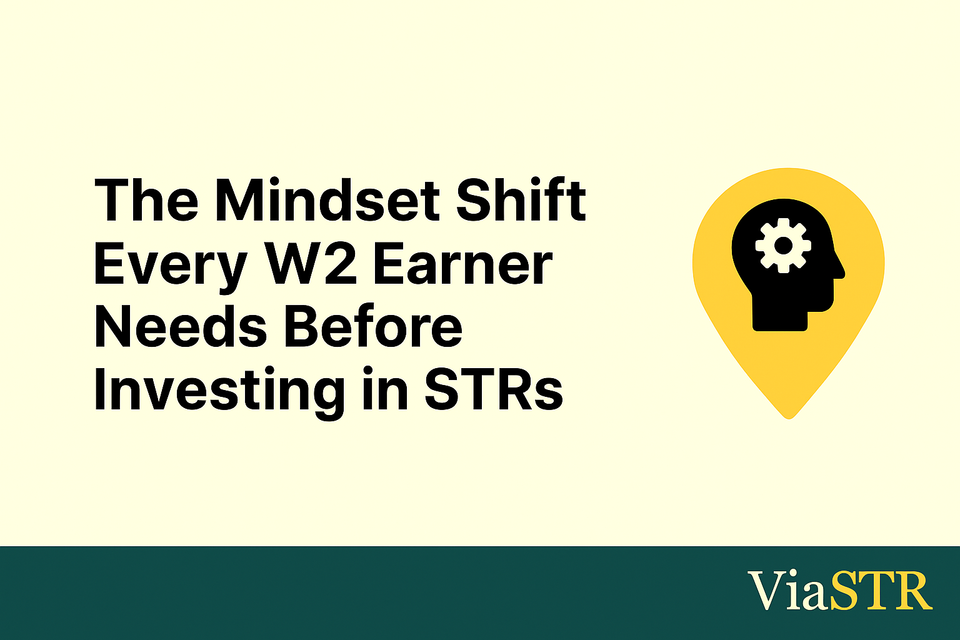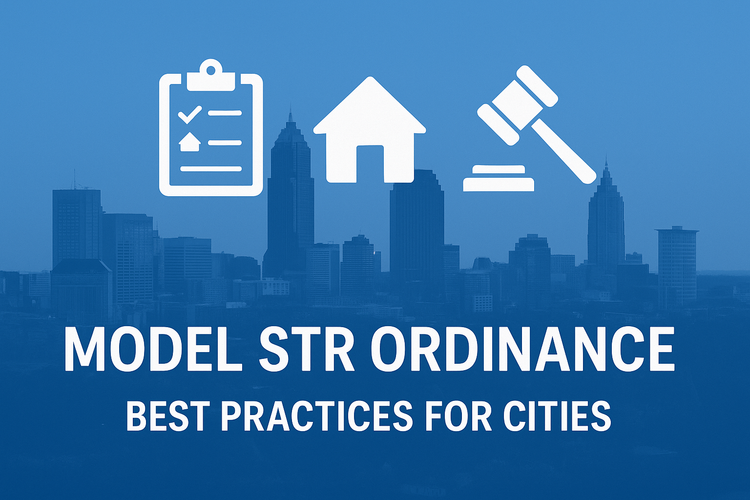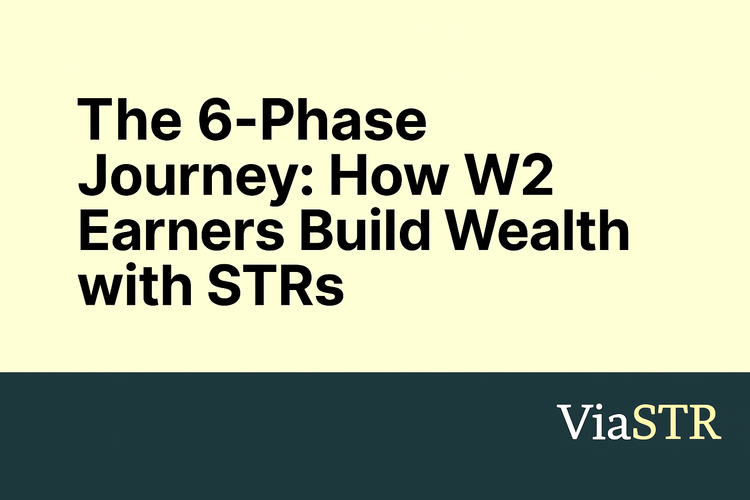The Mindset Shift Every W2 Earner Needs Before Investing in STRs

For most high-income professionals, wealth feels tied to raises, bonuses, and promotions. But building wealth through short-term rentals (STRs) requires a completely different way of thinking.
Before choosing a market or analyzing deals, the first step is upgrading your mindset.
At a Glance
- STR investing starts with a shift from employee thinking to investor thinking.
- Cashflow, not salary, becomes the new wealth engine.
- Risk isn't avoided — it's calculated and controlled.
- The best STR investors focus on long-term wealth, not just quick wins.
- Your mindset is the foundation of your success in real estate.
Why Mindset Matters More Than Math
You can learn to analyze a deal.
You can hire a cleaner, a CPA, or a realtor.
But if your mindset isn’t ready, none of it will stick.
“Success in STR investing is 80% psychology, 20% mechanics.”
— Inspired by Tony Robbins’ wealth frameworks
Mindset is what separates those who watch from the sidelines and those who start building cashflow assets.
4 Key Shifts for W2 Earners Entering STR
1. From Employee to Investor
Your job likely rewards time with money:
Work 40+ hours → receive paycheck.
But real estate flips that model. STRs let you:
- Build assets that earn income 24/7
- Turn equity into leverage
- Create revenue streams that aren’t tied to your physical effort
Think like an owner. Not a worker.
2. From Paycheck to Cashflow
Most W2 earners are conditioned to wait for deposits on the 1st and 15th.
STRs introduce something new: daily income that you control.
When booked correctly, a single STR can:
- Generate $3,000–$10,000/month
- Cover your mortgage and living costs
- Fund future acquisitions
You go from employee income → entrepreneurial cashflow.
3. From Fear to Calculated Risk
W2 jobs tend to reward safety and consistency.
But real estate wealth lives on the other side of informed risk.
Great investors:
- Run the numbers — and know the downside
- Diversify markets and amenities
- Learn from data platforms like STR Insights, AirDNA, and TheAirbnbDataGuy
You don't eliminate risk. You manage it better than most.
4. From Short-Term Wins to Long-Term Wealth
Bonuses disappear.
Raises vanish into lifestyle creep.
But STRs can fund:
- Debt paydown
- Business expansion
- Dream travel
- Retirement
- Education for your kids
One STR could be worth $500,000+ in lifetime income and appreciation.
Don’t just ask: “What’s the ROI?”
Ask: “What kind of life can this build for my family?”
Case Study: Joe, the Software Engineer
Joe made $300k/year but paid over $100k in taxes.
After buying his first STR and applying the STR loophole, he offset $85k in W2 income through bonus depreciation.
With that tax savings and STR income:
- He bought another STR within 12 months
- Built a cashflow cushion
- Cut back to 4-day workweeks
- Started planning a full exit
Joe’s story is not unique — he simply thought differently.
The Bottom Line
Your STR journey begins in your mind — not in a spreadsheet.
Ask yourself:
- Am I ready to build assets, not just earn income?
- Can I shift from fear to confidence — even with imperfect knowledge?
- Do I want time freedom, not just more money?
If yes, you’re already ahead of 90% of would-be investors.
What’s Next?
With the right mindset in place, it’s time to define your personal wealth vision.
In the next article, we’ll walk through how to connect your financial goals to generational wealth using STRs.
👉 Next up: Building Your STR Vision: From Financial Goals to Generational Wealth
See Also
- Should You Invest in Short-Term Rentals?
- The STR Loophole Explained
- Advanced Tax Strategies for STR Investors



